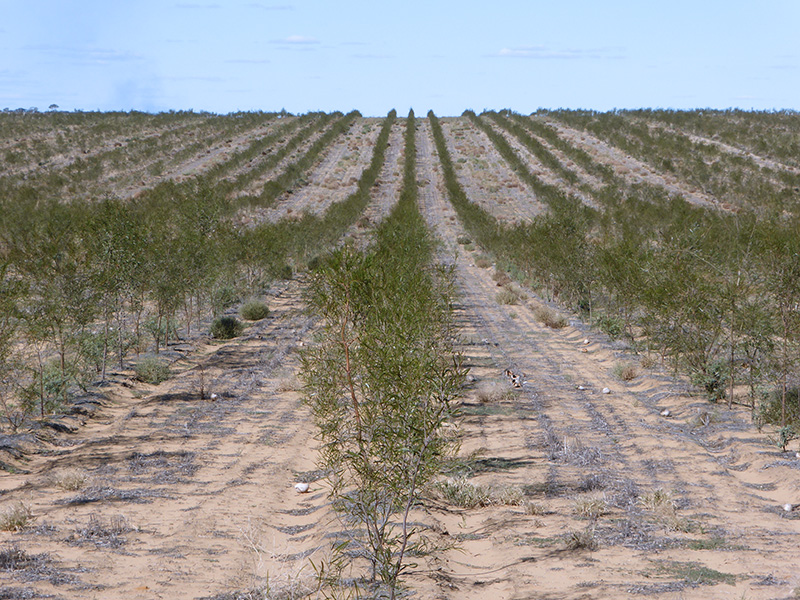Environmental Benefits
WISPER’s sandalwood production system is designed to maximize both economic and environmental benefits, recognizing these assets contribute to the health of natural resources such as soil, water an biodiversity.
We categorise the main benefits as Salinity Management, Carbon Sequestration and Water Conservation.
Reversing & Mitigating Salinity Issues
Salinity is caused by water tables rising from clearing of land for dryland farming. Predications indicate that 17 million hectares in Australia could be affected by 2050 costing billions of dollars in lost productivity. In Western Australia salinity has already caused a 50% decrease in wetland bird numbers with 450 plant species threatened with extinction.
WISPER's policy is to not clear any remnant bush or trees with the roots of the newly planted trees assisting to mitigate salinity by reducing the impact of rising watertables.
Carbon Sequestration
Carbon dioxide sequestration plays an important role in reducing greenhouse gas emissions and mitigating the effects of climate change.
Not only does WISPER’s plantations sequester carbon dioxide but the host trees produced in the production cycle can also be used as an important biomass source for renewable energy.
Water & Soil Conservation
Plantations aid the conservation of soil and water resources by reducing erosion, stabilise soils, scavenging free nutrients, reduce runoff, improve water infiltration and increase the overall organic matter. This in turn promotes beneficial organisms that improve the overall soil productivity.







